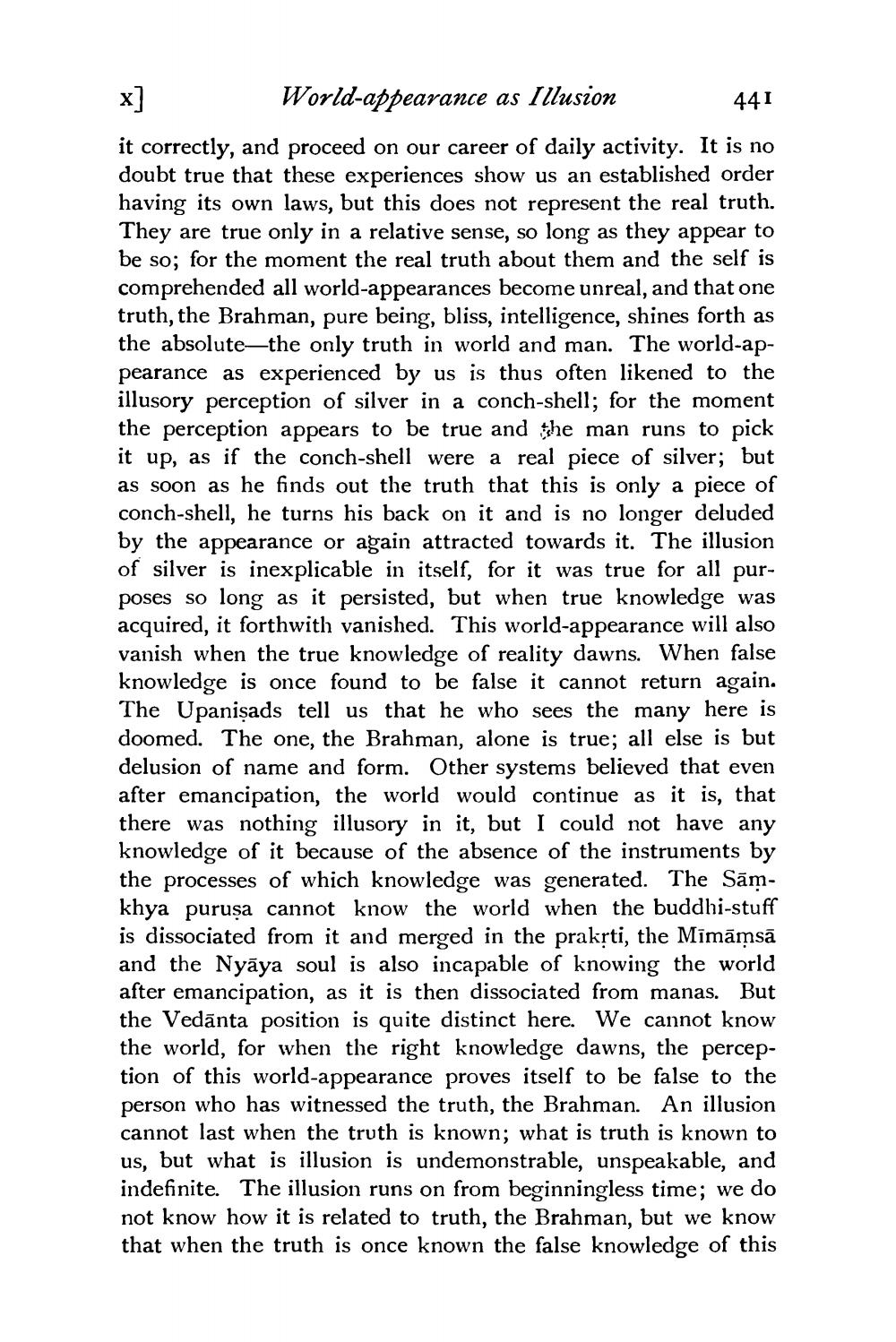________________
World-appearance as Illusion
441 it correctly, and proceed on our career of daily activity. It is no doubt true that these experiences show us an established order having its own laws, but this does not represent the real truth. They are true only in a relative sense, so long as they appear to be so; for the moment the real truth about them and the self is comprehended all world-appearances become unreal, and that one truth, the Brahman, pure being, bliss, intelligence, shines forth as the absolute—the only truth in world and man. The world-appearance as experienced by us is thus often likened to the illusory perception of silver in a conch-shell; for the moment the perception appears to be true and the man runs to pick it up, as if the conch-shell were a real piece of silver; but as soon as he finds out the truth that this is only a piece of conch-shell, he turns his back on it and is no longer deluded by the appearance or again attracted towards it. The illusion of silver is inexplicable in itself, for it was true for all purposes so long as it persisted, but when true knowledge was acquired, it forthwith vanished. This world-appearance will also vanish when the true knowledge of reality dawns. When false knowledge is once found to be false it cannot return again. The Upanişads tell us that he who sees the many here is doomed. The one, the Brahman, alone is true; all else is but delusion of name and form. Other systems believed that even after emancipation, the world would continue as it is, that there was nothing illusory in it, but I could not have any knowledge of it because of the absence of the instruments by the processes of which knowledge was generated. The Sāmkhya purusa cannot know the world when the buddhi-stuff is dissociated from it and merged in the prakrti, the Mimāmsā and the Nyāya soul is also incapable of knowing the world after emancipation, as it is then dissociated from manas. But the Vedānta position is quite distinct here. We cannot know the world, for when the right knowledge dawns, the perception of this world-appearance proves itself to be false to the person who has witnessed the truth, the Brahman. An illusion cannot last when the truth is known; what is truth is known to us, but what is illusion is undemonstrable, unspeakable, and indefinite. The illusion runs on from beginningless time; we do not know how it is related to truth, the Brahman, but we know that when the truth is once known the false knowledge of this




